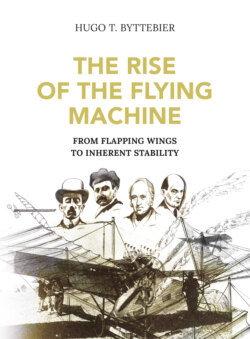Читать книгу The Rise of the Flying Machine - Hugo Byttebier - Страница 6
На сайте Литреса книга снята с продажи.
ОглавлениеPreface
To add another history of human flight to the many already published seems like an unnecessary undertaking. Yet, as in many other areas of knowledge, a subject can be approached from various angles and the present study is one more proof of this.
For a long time the author was puzzled by what seemed to be an incongruity. A great number of aviation historians arranged their chronicles around what was considered to be the crowning event: the first recorded, powered and manned flight in history. All previous and later historical events were made to appear of lesser importance or as in some way deriving from that one spectacular achievement.
Yet, when one studies the data available objectively, such a position cannot be held because of two undeniable facts: first, the type of aeroplane that is in general use today has its roots in the vision and work of the most enlightened pioneers of the nineteenth century. And second that the flying machine that made that much-heralded first flight was built according to a concept that stayed outside the mainstream of aviation development, a concept that eventually proved impractical and which had to be abandoned.
One may thus feel that there is some justification for believing that aviation history can be approached from a different angle, one which gives more importance to the continuous evolution that began in the early years of the nineteenth century and progressively led to the modern aeroplanes that exist today.
Another aspect that should not be ignored is the impact that this first flight had on the burgeoning aviation movement of the early twentieth century when the ultimate objective seemed so near, as indeed it was, and the misguided attempt to turn what the inventors believed was the technical predominance of their design into a monopoly and the controversy that followed. It all adds to the fascination that accompanies many a tale of human struggles with their corollaries of triumph and despair.
